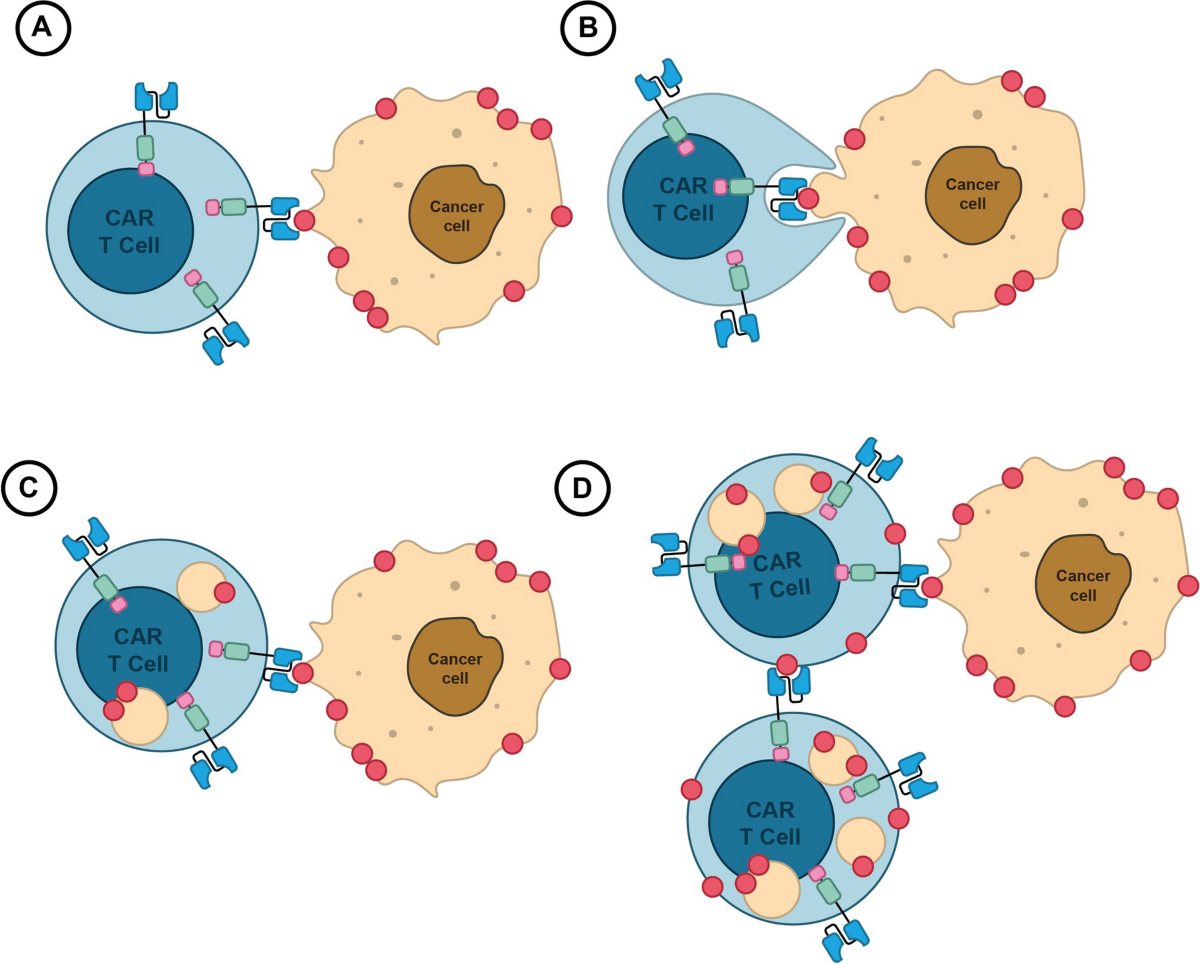How Effective Is CAR T-Cell Therapy? A Deep Dive into Its Impact on Cancer Treatment

CAR T-cell therapy is a leading edge treatment for some types of cancer and has already given new hope to patients without other alternatives. Since it is immunotherapy- CAR T-cell therapy puts the body's immune system against cancer- and since it has proven better results, particularly in blood cancers such as leukemia and lymphoma- then, how effective is CAR T-cell therapy? In this blog, we’ll explore how it works, the results it has delivered, its challenges, and its potential future in cancer treatment.
What Is CAR T-Cell Therapy?
-
CAR T-cell therapy is an individualized therapy that modifies the T-cells of a patient, which are the immune cells responsible for combating infections and cancer. T-cells are obtained from the blood of the patient and then in the laboratory, are genetically engineered to express a special receptor called chimeric antigen receptor, or CAR. This receptor allows the T-cells to recognize and attack specific proteins found on cancer cells.
-
Once the CAR T-cells are modified, they are returned to the patient's body where they seek out and destroy the cancer cells. This therapy is mostly applied to blood cancers such as leukemia, lymphoma, and multiple myeloma; however, researchers are trying to make it adaptable to solid tumors such as breast, lung, and colon cancer.
How Effective Is CAR T-Cell Therapy?
CAR T-cell therapy has been proven to be effective in many clinical trials, especially in patients with cancers that have not responded to conventional treatments such as chemotherapy or radiation. Here's a look at its impact on some of the most common cancers:
Blood Cancers
-
B-Cell Lymphoma: CAR T-cell therapy has already been used effectively in patients suffering from relapsed or refractory B-cell lymphoma. Patients have experienced 50-60% complete remission after being infused with CAR T-cells and some patients were cancer-free even after years. That's very crucial as most of them had exhausted other avenues of treatments prior to their selection for CAR T-cell therapy.
-
Leukemia (Acute Lymphoblastic Leukemia - ALL): CAR T-cell therapy has also had a significant impact on the treatment of B-cell acute lymphoblastic leukemia (ALL), a cancer that impacts white blood cells. With CAR T-cells, remission rates for relapsed or refractory ALL in children and adults have reached as high as 80%, saving those patients whose survival options were otherwise very limited.
-
Multiple Myeloma: CAR T-cell therapy has also been promising in the context of multiple myeloma, where the cancer and malignant plasma cells are targeted. Important observations on multiple myeloma cell populations have been shown to be reduced drastically and there have even been some lasting remissions in patients. Still an emerging treatment for multiple myeloma, early results show it is expected to provide a valuable option for patients whose therapies have proven not effective against cancer.
Solid Tumors
-
CAR T-cell therapy has shown impressive results with blood cancers, but its application in solid tumors such as breast, lung, and colon cancer is still being explored. Solid tumors pose a number of challenges, such as the dense tumor environment, which hinders the penetration of immune cells into the tumor to destroy the cancer cells.
-
Research is ongoing to find ways to enhance CAR T-cell therapy's effectiveness for solid tumors. Some early-stage clinical trials have shown promising results, but much more work is needed before CAR T-cell therapy can be widely used for these cancers.
Challenges and Risks
Though CAR T-cell therapy has shown tremendous promise, it is not without its risks and challenges:
Side Effects
-
The most critical adverse effect of CAR T-cell therapy is CRS. This happens when the T-cells trigger an over-immune response that creates high levels of cytokines in the blood. CRS can lead to fever, hypotension, and, in extreme situations, failure of organs. The second fear that people have regarding this therapy is neurotoxicity, which results in confusion, inability to speak, and, in some rare cases, seizures. Though these side effects are often reversible with prompt treatment, they can still be life-threatening.
Relapse and Resistance
-
While CAR T-cell therapy has been a huge success, with high remission rates, there is always a chance of relapse. The cancer cells might develop resistance against the therapy through mutation to avoid detection by the engineered T-cells or through depletion of the immune system's ability to maintain the therapy. More research is conducted to make the CAR T-cell therapy last longer and decrease the chances of relapse.
Conclusion
CAR T-cell therapy has proven to be a groundbreaking advancement in cancer treatment, with impressive results for blood cancers and showing promise for other types of cancer. Though it comes with risks and challenges, such as high costs and potential side effects, the potential benefits it offers to patients, especially those with limited treatment options, are undeniable. And so does the future promise of CAR T-cell therapy itself, with greater potential for such treatment to drastically change the fight against this disease in coming years.
FOR MORE INFORMATION VISIT OUR OFFICIAL SITE:- https://www.edhacare.com/treatments/cancer/car-t-cell-therapy
- Art
- Causes
- Crafts
- Dance
- Drinks
- Film
- Fitness
- Food
- Jocuri
- Gardening
- Health
- Home
- Literature
- Music
- Networking
- Alte
- Party
- Religion
- Shopping
- Sports
- Theater
- Wellness


